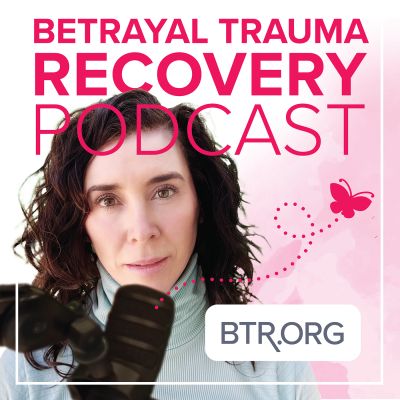btr.org - btr.org has daily, online Group and Individual Sessions for victims of emotional & psychological abuse and sexual coercion. For women experiencing pain, chaos, and isolation due to their husband’s lying, gaslighting, manipulation, porn use, cheating, infidelity, emotional abuse, and narcissistic abuse. Labeling a victim as "codependent" is a form of victim blaming. Pornography addiction / sex addiction are a domestic abuse issue. Narcissistic abuse is not a communication issue. We help women who are married, separated, or divorced heal through establishing emotional safety. If you suspect your husband is a narcissist, a pornography addict, or emotionally abusive, this podcast is for you. Every woman on our team has experienced betrayal trauma first hand. To learn more about Betrayal Trauma Recovery, visit BTR.ORG
https://www.btr.org/podcast/
episode 149: Post-Traumatic Growth: Will I Ever Be Okay Again?
One of the most devastating aspects of betrayal trauma, are the terrifying, heart-breaking, and ever-persistent torrents of emotions that make many victims ask, "Will I ever be okay again?"
When women are betrayed and emotionally abused by their partners, they experience a deep, soul-disrupting trauma that can make life feel very bleak for a period of time. However, with healthy practices, victims can, over time, experience Post-Traumatic Growth.
Tracy, a member of the Betrayal Trauma Recovery community joins Anne on the free BTR podcast to empower women to take the steps to begin their journey to Post-Traumatic Growth. Listen to the free BTR podcast and read the full transcript below for more.
What Is Post-Traumatic Growth?
After finding safety from betrayal and abuse, women can experience a powerful change within themselves that leads them to a strong sense of self that propels them to keep making healthy decisions.
Tracy explains what her Post-Traumatic Growth feels like:
It’s a genuine self-compassion. It’s loving ourselves enough to set boundaries. It’s allowing ourselves the time and the patience to move through the hard painful work of healing and coming out the other side with a new appreciation for life, healthier relationships with others, an optimistic view of new possibilities in life. We feel stronger, we feel changed.
Tracy, member of the Betrayal Trauma Recovery community
I Feel Stuck In Trauma: How Can I Experience Post-Traumatic Growth?
Many victims who feel "stuck" in their trauma are still being abused, though it may not be easy to identify the abusive behaviors. Some women feel that something is "off" in their marriage, but don't have evidence or proof to support their gut instinct. Others may believe that their partner is in recovery, but there is still underlying covert abuse present.
Tragically, these victims often blame themselves, believing that they are just "choosing not to forgive" or so traumatized that no matter how safe their partner is, they will never heal.
Most of the time, if you feel "stuck" in your trauma, you are not safe.
You’re currently in the worst-case scenario (which is an abusive relationship) and nothing is going to feel good. There is nothing that is going to feel peaceful. There is nothing that’s going to feel right when it comes to an abusive situation. Every effort you make to work towards safety is going to feel like, "ugh, I don’t really want to do this," because you don’t want to set that boundary. You don’t want to make your way to safety because that’s not the ideal situation. The ideal situation is a non-abusive situation, and that’s not the situation that you’re in.
Anne Blythe, founder of Betrayal Trauma Recovery
Safety Is Essential For Post-Traumatic Growth
The bedrock foundation for Post-Traumatic Growth is safety. At BTR, we believe that every woman deserves to live a life of emotional, sexual, spiritual, physical, and mental safety. By setting and maintaining appropriate boundaries,
